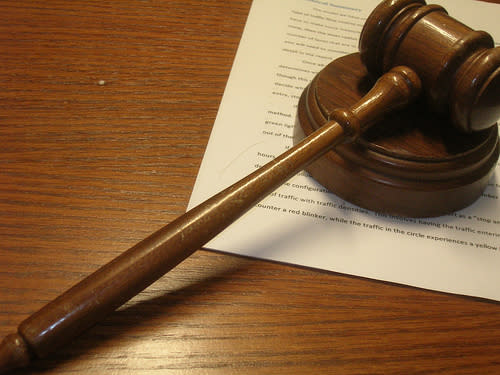Ohio judge orders drunk drivers to install Lyft, Uber on their smartphones

You might've heard of Judge Michael A. Cicconetti. Based in Painesville, Ohio, he's become widely known for meting out punishments that are often thoughtfully matched to the wrongs of the convicted. For example:
- He ordered a woman who abandoned 35 kittens in the woods to spend a night in the woods herself without food, water, or entertainment. (The woman also had the option of choosing a 90-day jail sentence. She chose the woods.)
- He gave another woman who'd skipped out on a 30-mile cab ride the option of spending 30 days in jail or walking 30 miles. (She chose to hoof it.)
- And instead of a more conventional sentence, he gave a man who stole a Salvation Army donation kettle the option of spending 24 hours homeless.
Now, Cicconetti is applying that same "eye for an eye" model to drunk driving.
Late last month, Cicconetti began ordering anyone convicted of driving under the influence to install a ride-sharing app like Lyft or Uber to their smartphones and enter credit card information. Though offenders don't actually have to use the app, Cicconetti believes that having it set up and ready to go makes the option of hailing a ride much more attractive for drivers when they've had one too many.
He was inspired to add the requirement by an acquaintance who'd been convicted of driving under the influence four times. Cicconetti asked the man why he didn't just install Lyft or Uber on his phone, and the man simply replied that he didn't know how. Shortly afterward, Cicconetti made installing such apps part of the probation for drunk drivers.
Asked about whether he was promoting a particular business, Cicconetti scoffed: "I’m not promoting Uber or Lyft. I have no monetary interest in Uber or Lyft. In the next 20 years, they’ll have self-driving cars anyway so we won’t have to worry about it."
Do Cicconetti's policies work? To hear him tell it, they do. Nationwide, the recidivism rate for criminals is around 75 percent. However, Judge Cicconetti says that the recidivism rate in his court is only about 10 percent.
You might've heard of Judge Michael A. Cicconetti. Based in Painesville, Ohio, he's become widely known for meting out punishments that are often thoughtfully matched to the wrongs of the convicted. For example:
He ordered a woman who abandoned 35 kittens in the woods to spend a night in the woods herself without food, water, or entertainment. (The woman also had the option of choosing a 90-day jail sentence. She chose the woods.)
He gave another woman who'd skipped out on a 30-mile cab ride the option of spending 30 days in jail or walking 30 miles. (She chose to hoof it.)
And instead of a more conventional sentence, he gave a man who stole a Salvation Army donation kettle the option of spending 24 hours homeless.
Now, Cicconetti is applying that same "eye for an eye" model to drunk driving.
Late last month, Cicconetti began ordering anyone convicted of driving under the influence to install a ride-sharing app like Lyft or Uber to their smartphones and enter credit card information. Though offenders don't actually have to use the app, Cicconetti believes that having it set up and ready to go makes the option of hailing a ride much more attractive for drivers when they've had one too many.
He was inspired to add the requirement by an acquaintance who'd been convicted of driving under the influence four times. Cicconetti asked the man why he didn't just install Lyft or Uber on his phone, and the man simply replied that he didn't know how. Shortly afterward, Cicconetti made installing such apps part of the probation for drunk drivers.
Asked about whether he was promoting a particular business, Cicconetti scoffed: "I’m not promoting Uber or Lyft. I have no monetary interest in Uber or Lyft. In the next 20 years, they’ll have self-driving cars anyway so we won’t have to worry about it."
Do Cicconetti's policies work? To hear him tell it, they do. Nationwide, the recidivism rate for criminals is around 75 percent. However, Judge Cicconetti says that the recidivism rate in his court is only about 10 percent.

 Yahoo Autos
Yahoo Autos 
